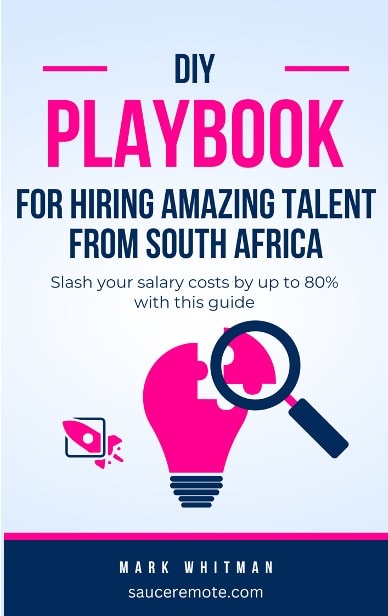Employer of record vs staffing agency: which is best for your business?
While there is some overlap in services offered, going with the wrong HR service can harm your business.
But don’t worry. I’m here to highlight the key differences between an EOR and a staffing agency. We’ll look at costs, functions, pros, cons and more.
Ready? Let’s roll.
Employer of Record vs Staffing Agency: What You Must Know
Here’s a brief table showing the main differences between an EOR and a staffing agency.
Criteria | Employer of Record (EOR) | Staffing Agency |
|---|---|---|
Responsibility | Handles payroll, taxes, and compliance fully | Manages payroll and taxes mainly for temp/contract roles |
Employee Relationship | Best for permanent, integrated employees | Suited for temporary or contract workers |
Cost Structure | Typically flat fee or percentage of payroll | Markup on hourly rates or recruitment fees |
Flexibility vs. Control | More control over daily activities; offloads admin burden | Maximum flexibility; less control over worker selection |
Best Use Cases | Expanding globally, remote team setups, long-term hires | Seasonal staffing, short-term projects, urgent needs |
Ready for a more detailed dive? Let’s start by looking at what an EOR is and does.
What is an Employer of Record (EOR)?
An Employer of Record (EOR) is a third party that handles all the behind-the-scenes HR tasks, such as payroll, taxes, and compliance, so you can focus on running your business.
Essentially, they become the "official" employer on paper, handling the legal and administrative responsibilities while you retain control over the day-to-day management and direction of your team.
How Does an EOR Work?
An EOR steps in to manage payroll and benefits, making sure your team gets paid on time and that taxes are filed correctly, all while keeping everyone covered with the necessary benefits.
They’re also the ones sweating over compliance, knowing all the local laws, tax regulations, and worker rights, so you don’t have to.
And if you're looking to hire across borders, they make it happen smoothly without you needing to set up a legal entity in another country.
Who Typically Uses an EOR?
Several different organisations, from young to old, use an EOR. You can typically organise them into the following categories:
- Companies Expanding Internationally: If you're venturing into new markets and want to avoid the legal headache of setting up shop, an EOR has got your back.
- Remote Teams: Running a remote-first operation with people scattered all over? An EOR can handle the logistics.
- Small Businesses: If you’re a small business without a dedicated HR or legal team, an EOR helps you play big without a big budget.
- Startups: An EOR is excellent for startups that may not have the necessary HR resources or time to invest in managing hiring, payroll, benefits and local laws.
Pros and Cons of Using an EOR
Here are the pros and cons of using an EOR:
Pros:
- Global Reach Without the Hassle: Hire talent anywhere in the world without setting up local entities or navigating foreign laws.
- Simplified Compliance: No more sleepless nights over tax filings or local employment laws—your EOR keeps everything legit.
- Cost-Effective: Especially when expanding internationally, using an EOR is often cheaper than establishing a new entity.
Cons:
- Less Control Over Employee Management: While the EOR handles the administrative side, you might feel like you have less direct control over some employee management aspects.
- Potential Extra Fees: Convenience can come at a cost. Some EORs charge additional fees for services outside their basic package.
Now, let’s look at a staffing agency and how it works.

Discover how to slash your salary costs by 80%
Get our exact process for hiring amazing overseas talent from South Africa. Includes copy-and-paste templates and a detailed salary guide.
What is a Staffing Agency?
A staffing agency helps companies fill positions—whether temporary, permanent or somewhere in between—by tapping into a vast pool of talent they’ve already vetted and screened.
How Does a Staffing Agency Work?
Here’s the gist: you tell the staffing agency what kind of worker you need, and they go out and find them for you.
They handle everything from recruitment and initial interviews to placement.
Depending on your needs, they can provide temporary workers for short-term projects, seasonal staff to cover busy periods or even candidates for permanent positions.
The goal? To quickly fill those gaps in your team without you lifting a finger.
Who Typically Uses a Staffing Agency?
Staffing agencies are popular across various business types. Here’s who usually turns to them:
- Retailers During Seasonal Peaks: Think holiday seasons or back-to-school rushes when extra hands are needed quickly.
- Companies with Short-Term Projects: Perfect for businesses tackling projects with tight deadlines and a need for specialized skills.
- Businesses with Urgent Staffing Needs: When there's a sudden vacancy or a spike in demand, and you don’t have time to sift through resumes or conduct multiple interviews.
Pros and Cons of Using a Staffing Agency
Here are the typical pros and cons of a staffing agency.
Pros:
- Quick Staffing: Need someone yesterday? Staffing agencies can find candidates faster than you can post a job ad.
- Access to a Talent Pool: They have a roster of pre-screened candidates, so you get a shortlist of qualified people right away.
- Flexibility: Great for filling temporary gaps or hiring on a trial basis before committing to a full-time employee.
Cons:
- Higher Costs in the Long Run: While convenient, agency fees can add up, especially for long-term needs.
- Less Control Over Worker Quality: You’re relying on the agency’s screening process, which might not always align with your company’s standards.
Now that we understand what an EOR and a staffing agency is, let’s take a closer look at the differences between them.
Hire remote talent from South Africa & slash salary costs by 80%
Salaries start from £8,000 per year!
4 Key Differences Between EOR and Staffing Agency
Understanding the differences between an EOR and a staffing agency comes down to what you need and how involved you want to be.
Let me break down the key points:
1. Responsibility: Who Handles Payroll, Taxes, and Compliance?
With an EOR, they take full responsibility for payroll, taxes, benefits, and compliance with local employment laws.
They act as the legal employer, so your business avoids the headache of navigating complex regulations, especially in different countries.
A staffing agency, on the other hand, also manages payroll and taxes, but mainly for the temporary or contract workers it provides.
They handle the employment paperwork, but you manage the day-to-day tasks and ensure the work aligns with your goals.
2. Employee Relationship: Permanent Employees vs. Temp Workers
An EOR is perfect for hiring permanent employees in a new market or for remote roles without setting up a legal entity.
Your team members are fully integrated into your company culture—they’re just officially employed by the EOR.
A staffing agency primarily deals with temporary or contract workers.
These workers are often more “on-demand,” so while they can fill immediate needs, they might not have the same level of commitment or alignment with your long-term company vision.
Hire remote talent from South Africa & slash salary costs by 80%
Salaries start from £8,000 per year!
3. Cost Structure: Where Does the Money Go?
With an EOR, costs are usually clear-cut: you pay a flat fee or percentage of payroll for their services, covering everything from taxes to benefits. This can be more cost-effective for long-term, permanent hires.
A staffing agency often charges a markup on the hourly rates of temporary workers or a recruitment fee for permanent placements. This fee can sometimes be steep, especially if you’re looking for highly specialised skills.
4. Flexibility vs. Control: How Much Control Do You Retain?
Using an EOR gives you greater control over your team’s daily activities and integration into your business while offloading administrative burdens like compliance and payroll.
You maintain strategic control but might feel slightly distanced from the HR functions.
With a staffing agency, you get maximum flexibility. Do you need someone for a few weeks or months? Done.
But you sacrifice some control over who’s joining your team and how well they fit into your company culture.
Hire remote talent from South Africa & slash salary costs by 80%
Salaries start from £8,000 per year!
How to Choose Between an EOR and a Staffing Agency?
Deciding between an Employer of Record (EOR) and a staffing agency can feel like choosing between two perfectly good options—each with its own strengths.
Here’s my quick checklist to help you figure out which one suits your business best:
Assess Your Needs:
Start by looking at the size of your business, your geographic reach, and the type of work you need done.
If you’re a small company looking to expand internationally or manage a remote team, an EOR might be the best fit.
If you're dealing with a seasonal surge or a specific project, a staffing agency could be the way to go.
Cost Considerations:
Think about your budget and the cost implications of each option.
EORs typically have upfront costs or fees based on payroll, but they often save you money in the long run, especially with permanent hires.
Staffing agencies might charge higher fees or markups, which can add up over time if your staffing needs are ongoing.
Hire remote talent from South Africa & slash salary costs by 80%
Salaries start from £8,000 per year!
Compliance Needs:
Consider the complexity of your hiring situation. Are you hiring locally or internationally?
If you’re entering new markets with different labor laws and regulations, an EOR can handle the compliance headache for you.
For local, short-term hires, a staffing agency can provide quick solutions without the need for long-term commitments.
Control Level:
How much control do you want over your workforce?
If you want to maintain a strong connection with your employees and oversee their day-to-day activities, an EOR allows you to manage this while taking care of the admin side.
On the other hand, if you’re comfortable with a bit less control and just need to get the job done quickly, a staffing agency offers more flexibility.
When to Use Which?
Here’s the long and the short of it:
- EOR is Best For: Expanding into new markets, building a remote team, or hiring long-term international employees.
- Staffing Agency is Best For: Covering seasonal peaks, short-term projects, or quickly filling unexpected vacancies.
